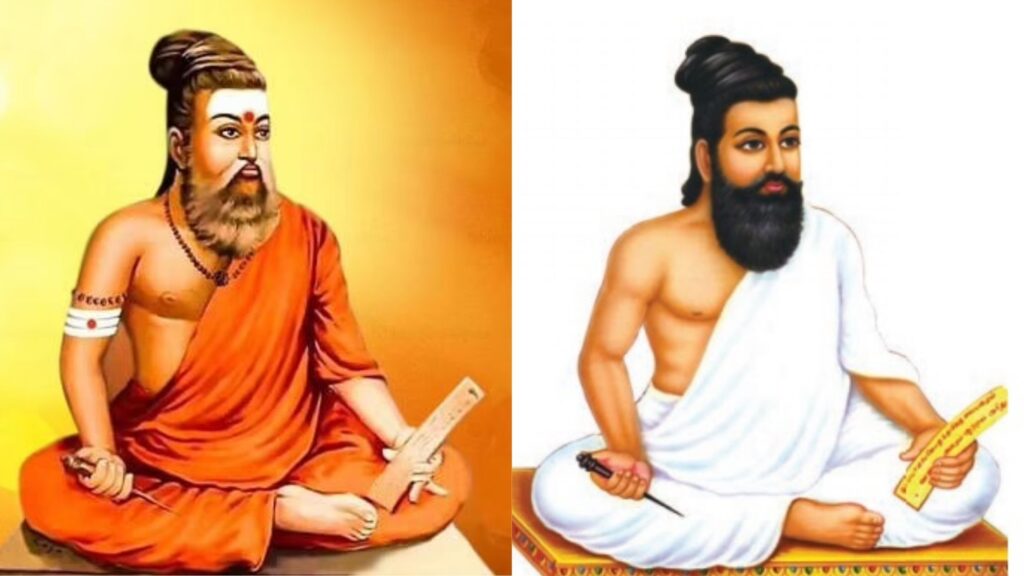Thiruvalluvar is a renowned Tamil poet and his literature Thirukkural has verses on ethics, politics, ahimsa, justice, economics, love, health, education, and many more areas which shall guide a human to a dharmic life.
His entire literary work has 1330 verses and each verse not beyond two lines (couplet) conveying the importance on specific life topic. His work is divided into 133 sections of 10 couplets each. Valluvar teachings are similar to those found in Arthasastra.
He is believed to be born in Mylapore in Tamil Nadu and later moved to Madurai for his work. Few other claims that he was born in Madurai only. His literature work dates between 300 BCE to 450 BCE. Tamil Nadu Government recognised 31 BCE as the year of Thiruvalluvar.
He is also referred with names like Valluvar, Deivappulavar, Maadhaanupangi, Naanmuganaar, Naayanaar. Above image is the procession deity of Thiruvalluvar Temple in Mylapore which is taken for the participation in Arupathu moovar (63) festival of Kapaleeswara temple.
The very first couplet of Thirukkural is Kadavul Valthu (Salutations to God). It is evident he is believer of God and cannot be an atheist.
There have been several attempts to secularise Thiruvalluvar, destroy his original Hindu identity and depict him as a Non-Hindu. But deeper analysis on usage words in his couplets will reveal his identity.
Over the years, his persona has been hidden and incomplete artistic representation was promoted by political parties in the name of the secularism. Apparently, insiders in a political party went on to claim the construction of the large Thiruvalluvar statue in Kaniyakumari was to eradicate the attractiveness of Swami Vivekananda Memorial, which has been strong symbol of Santana Dharma.
Thiruvalluvar has used certain words which are purely contextual to Hinduism example the Holy feet, attaining the Holy feet. A 14th Century statue found in Mylapore revealed his original identity. Several distortions were made : yagnopaveetham (sacred thread) has covered with cloth, chin-mudra (upadesa mudra) has been replaced ezhuthani with instrument that used to write on palm leaves, his way of pleating the hair, long ear holes because of persistent wearing of ear-rings.
Obvious references made to Hindu Gods in Thirukkural (Couplets) are listed below.
- Trivikrama/Vamana Avatar – 610
- Amrita – 64, 82, 720, 1106
- Yama – 269, 765, 1083, 1085
- Pitrus/departed souls- 43 (who live in southern direction)
- Brahma- 1062
- Indra – 25
- Krishna/Vishnu -1103 (Lotus Eyed)
- Lakshmi (Lotus seated)- 179, 519, 617, 920
- Alakshmi- 617, 936
- Charmer man- 1258 (Krishna of Gopis)
- Couplet 377 refers to Brahma, as the man who writes fate on every one’s head. But commentators translate the word as GOD.
- Couplet 580 refers to Siva drinking poison.
Apart from Tamil Nadu, there are 42 temples for Thiruvalluvar in Kerala and his couplets are sung as hymns and preached to people. Thirukkural has been translated in more than 80 languages. More than 30 languages have the complete verses translated.
This article was first published in Ind Samachar and has been republished here with permission.
Click here to subscribe to The Commune on Telegram and get the best stories of the day delivered to you personally.

